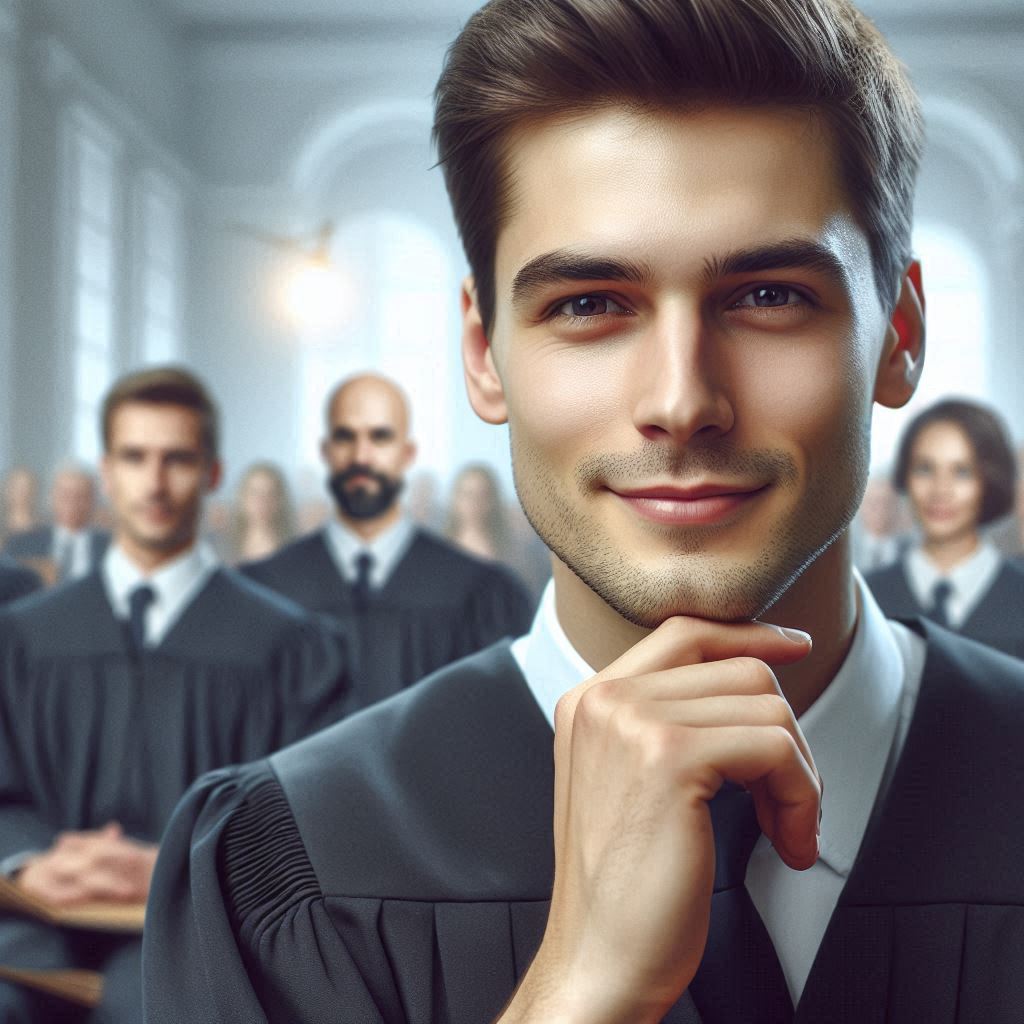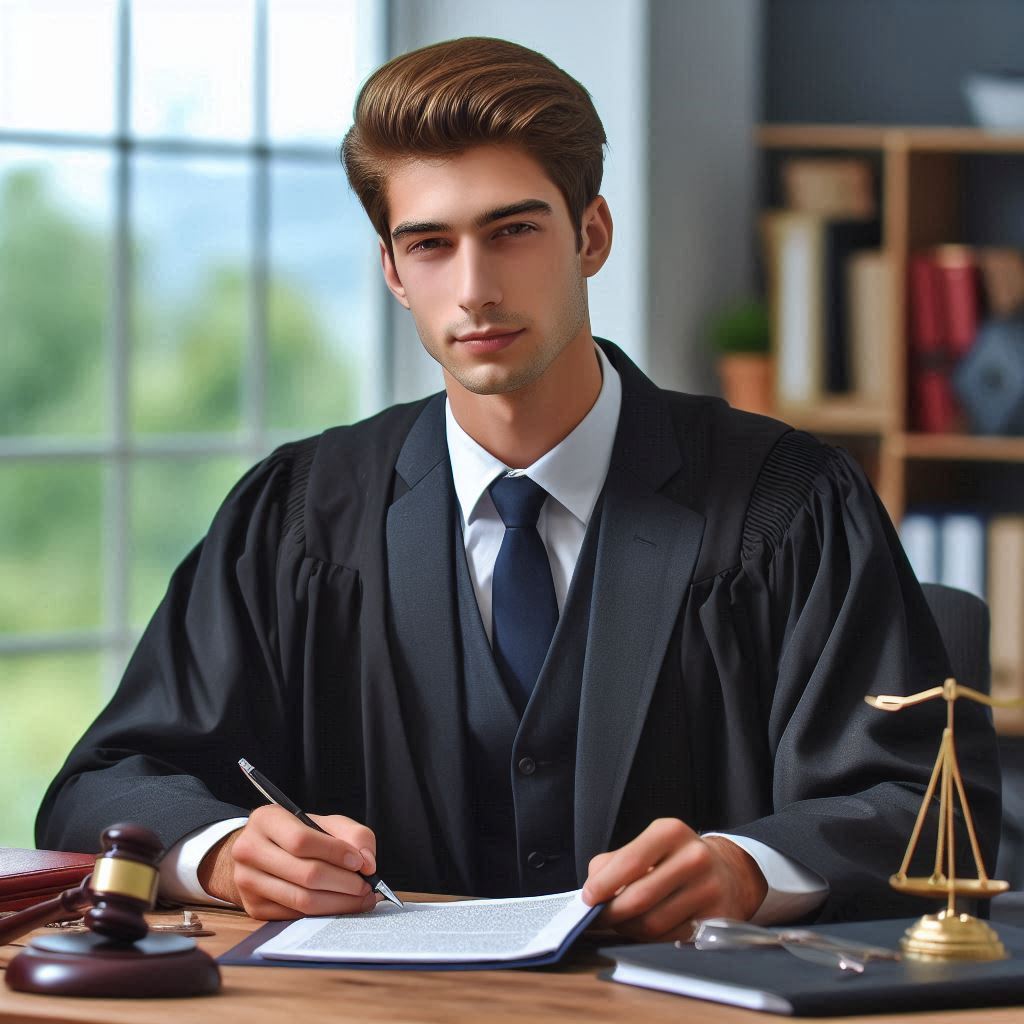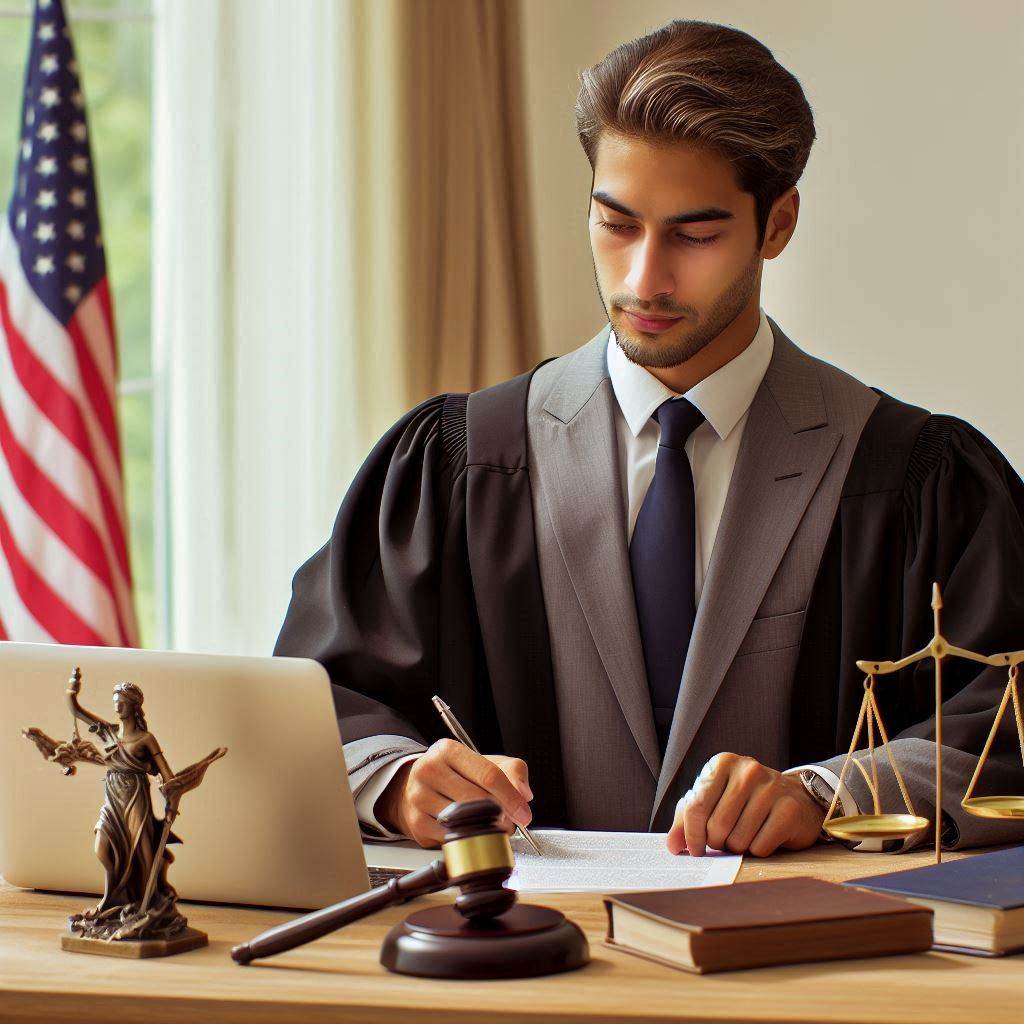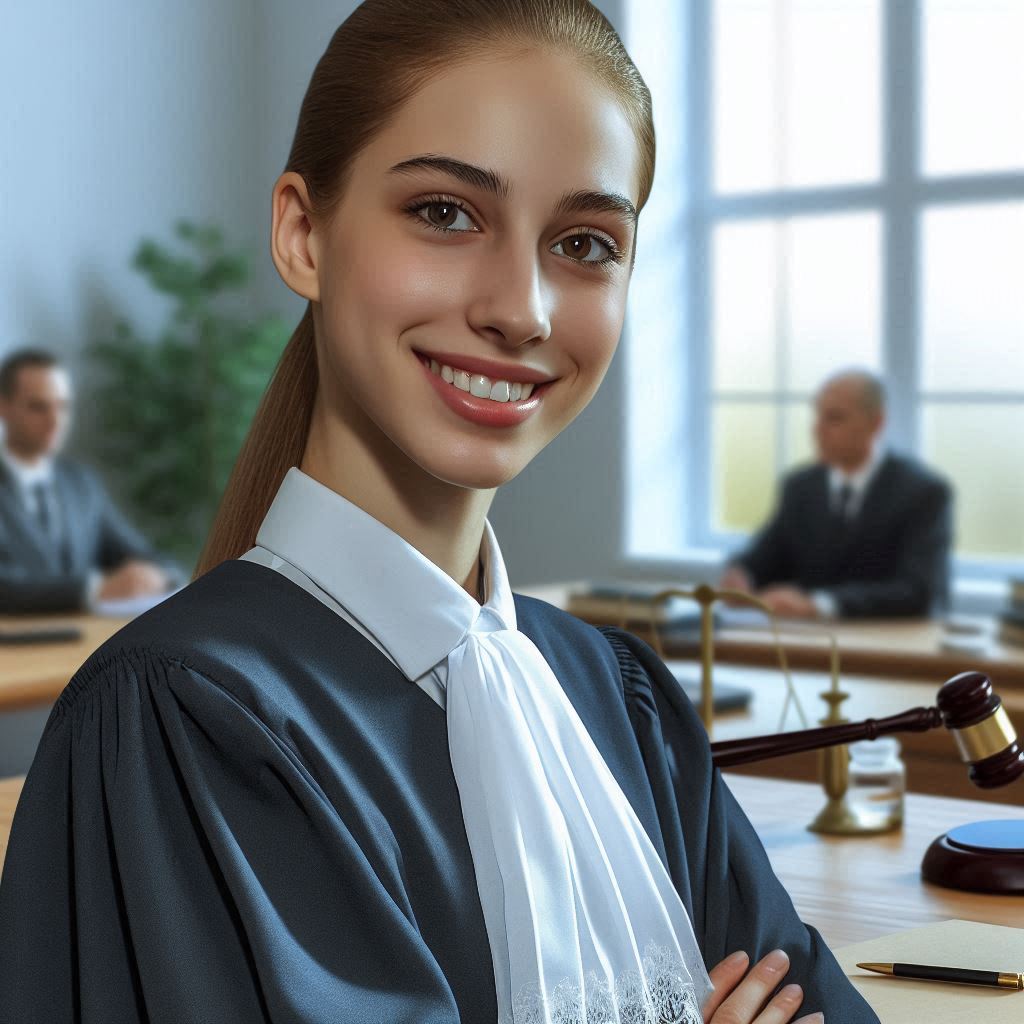Introduction
How Jury Consultants Assist Lawyers in Court: Jury consultants play a crucial role in the modern legal landscape, aiding lawyers in understanding and navigating the complexities of jury selection and trial strategy.
These professionals bring a blend of psychology, sociology, and legal expertise to the table, offering invaluable insights that can make a significant difference in the outcome of a case.
By analyzing jurors’ behavior, attitudes, and biases, jury consultants help lawyers build stronger, more persuasive arguments, ensuring a fair trial process.
Jury consultants are indispensable in legal cases due to their specialized skills in interpreting human behavior.
Their ability to dissect body language, vocal inflections, and facial expressions allows lawyers to gauge potential jurors’ underlying sentiments and predispositions.
This understanding is critical in selecting a jury that is likely to be impartial and receptive to the arguments presented during the trial.
Furthermore, jury consultants assist in shaping the narrative of the case in a way that resonates with the selected jurors, enhancing the lawyer’s ability to advocate effectively for their client.
One of the primary roles of jury consultants is to assist in voir dire, the process of questioning potential jurors.
They help lawyers formulate questions that reveal jurors’ hidden biases and attitudes.
By identifying individuals who may have preconceived notions or prejudices, jury consultants ensure that the selected jury is as unbiased as possible.
This meticulous selection process can prevent potential issues during the trial, such as mistrials or appeals based on claims of juror bias.
What Are Jury Consultants?
Jury consultants are professionals who assist lawyers in selecting impartial jurors for trials.
They play a crucial role in the legal system by providing valuable insights and strategies to help attorneys build strong cases.
Jury consultants are experts who specialize in understanding human behavior and attitudes.
They use their knowledge to assist lawyers in selecting jurors who are likely to be fair and impartial during a trial.
Role in the Legal System
Jury consultants help lawyers analyze potential jurors through a variety of methods, such as conducting focus groups, mock trials, and juror questionnaires.
By identifying biases and preferences, they can help attorneys make informed decisions during jury selection.
Qualifications and Skills
To become a jury consultant, individuals typically need a background in psychology, sociology, or law.
Strong analytical skills, research abilities, and communication skills are also essential for this role.
Additionally, experience working in legal settings can provide valuable insights into the nuances of jury selection.
Transform Your Career Today
Unlock a personalized career strategy that drives real results. Get tailored advice and a roadmap designed just for you.
Start NowRead: Understanding Legal Terminology for Secretaries
How Jury Consultants Assist in Jury Selection?
The process of jury selection and how jury consultants play a crucial role in this process
The jury selection process, known as voir dire, is critical in ensuring a fair trial.
Lawyers aim to select jurors who can objectively assess the case.
The techniques used by jury consultants to identify jurors who may be biased or unsuitable for a particular case
Here, jury consultants play a crucial role, bringing their expertise to identify ideal jurors and eliminate those with potential biases.
Jury consultants begin by researching the case details and developing a profile of an ideal juror.
This profile includes demographic, psychological, and social traits that align with the case’s strategy.
For instance, in a medical malpractice case, a consultant might look for jurors with a background in healthcare who can understand complex medical terminology.
During voir dire, jury consultants assist lawyers by observing potential jurors’ behaviors, body language, and responses to questions.
They analyze verbal and non-verbal cues to detect biases or predispositions that may affect the case outcome.
Techniques such as mock trials and focus groups are employed beforehand to test arguments and gauge reactions, refining the selection strategy.
One common method is the use of pre-trial questionnaires.
These surveys gather information about jurors’ backgrounds, opinions, and experiences. Jury consultants analyze this data to identify patterns indicating bias.
For example, a potential juror in a corporate lawsuit who strongly opposes big businesses may be unsuitable.
Jury consultants also employ social media and internet searches to uncover jurors’ hidden biases.
This digital footprint can reveal affiliations, interests, and opinions that might not surface during voir dire.
Examples of cases where jury consultants have helped lawyers in selecting the right jury
A notable example of effective jury consulting was seen in the O.J. Simpson trial.
The defense team, aided by jury consultants, sought jurors who might sympathize with Simpson.
Their strategy involved selecting African American women, who they believed would be more receptive to the defense’s arguments.
In fact, jury consultants are invaluable in the jury selection process.
Their expertise in psychology, behavior analysis, and research helps lawyers select impartial jurors, ensuring a fair trial.
Transform Your Career Today
Unlock a personalized career strategy that drives real results. Get tailored advice and a roadmap designed just for you.
Start NowThrough meticulous profiling and advanced techniques, they enhance the chances of a favorable outcome for their clients.
Read: Tips for New Legal Secretaries Starting Out

Analyzing Jurors’ Behavior and Attitudes
Jury consultants play a crucial role in the courtroom by helping lawyers select the most favorable jurors for their cases.
Their expertise lies in analyzing jurors’ behavior, attitudes, and body language during the jury selection process.
This analysis is pivotal in understanding how potential jurors might perceive and react to the evidence and arguments presented in court.
During voir dire, jury consultants meticulously observe potential jurors’ body language, facial expressions, and verbal responses.
These subtle cues can reveal underlying biases, discomfort, or sympathy towards the case.
For instance, a juror’s crossed arms or avoidance of eye contact might indicate reluctance or disagreement, while nodding and leaning forward could suggest engagement and openness.
By interpreting these non-verbal signals, jury consultants provide lawyers with valuable insights into the potential biases and inclinations of jurors.
Understanding Jurors’ Backgrounds and Beliefs
Understanding jurors’ backgrounds and beliefs is essential for building a persuasive case.
Jury consultants gather extensive information about potential jurors, including their demographics, personal experiences, and social attitudes.
This information helps lawyers tailor their arguments to resonate with the jurors’ values and perspectives.
For example, a juror with a background in law enforcement might have a different viewpoint on a criminal case than someone without such experience.
By identifying these differences, lawyers can adjust their strategies to better align with the jurors’ beliefs and enhance their persuasive efforts.
Methods Used to Gather Information
Jury consultants use various methods to gather information about potential jurors.
These include questionnaires, social media analysis, and in-depth interviews.
Questionnaires help collect standardized data on jurors’ demographics and general attitudes.
Social media analysis provides insights into jurors’ interests, opinions, and online behavior.
In-depth interviews offer a deeper understanding of jurors’ personal experiences and thought processes.
By combining these methods, jury consultants create comprehensive profiles of potential jurors, enabling lawyers to make informed decisions during jury selection.
Transform Your Career Today
Unlock a personalized career strategy that drives real results. Get tailored advice and a roadmap designed just for you.
Start NowIn short, jury consultants are invaluable assets in the courtroom, providing lawyers with the tools and insights needed to select favorable jurors.
Their expertise in analyzing behavior, understanding backgrounds, and gathering detailed information significantly enhances the chances of building a persuasive and effective case.
Read: Best Legal Secretary Professional Associations
Explore Further: Differences Between Prosecutors and Defense Attorneys
Addressing Juror Biases and Prejudices
How jury consultants help lawyers address juror biases and prejudices during trial
Jury consultants play a pivotal role in helping lawyers navigate the complexities of juror biases and prejudices during trials.
These professionals employ a variety of strategies to ensure a fair trial by identifying and addressing potential biases that jurors may bring into the courtroom.
The challenges of dealing with biased jurors and the strategies employed by jury consultants to counteract these biases
One of the primary challenges lawyers face is the inherent biases that jurors might hold.
These biases can stem from personal experiences, cultural backgrounds, or societal influences, and can significantly impact their perception of the case.
Jury consultants are skilled in recognizing these biases through detailed voir dire processes, where potential jurors are questioned about their backgrounds, beliefs, and opinions.
By doing so, consultants help lawyers identify individuals who may not be able to remain impartial.
To counteract these biases, jury consultants often use techniques such as mock trials and focus groups.
These tools allow them to gauge how different jurors might react to certain arguments and evidence.
Based on these insights, consultants advise lawyers on how to present their cases more effectively, emphasizing aspects that are likely to resonate positively with the jury while mitigating any potential negative biases.
Real-life examples of cases where jury consultants successfully managed juror biases
A notable example of successful bias management by jury consultants occurred in a high-profile criminal case.
In this case, the defense team faced a jury pool that was predominantly influenced by media coverage, which had painted the defendant in a negative light.
The jury consultant employed a combination of in-depth juror questionnaires and targeted voir dire questioning to identify and exclude those with strong preconceived notions about the case.
Additionally, they recommended specific narrative strategies that reframed the evidence in a way that countered the prevailing negative bias, ultimately leading to a more balanced deliberation.
In essence, jury consultants are invaluable in addressing juror biases and prejudices, employing a range of strategies to ensure fair trials.
Their expertise not only helps lawyers identify and mitigate potential biases but also enhances the overall integrity of the judicial process.
Read: Balancing Work and Life as a Legal Secretary
Transform Your Career Today
Unlock a personalized career strategy that drives real results. Get tailored advice and a roadmap designed just for you.
Start NowCollaborating with Legal Teams
The importance of collaboration between jury consultants and legal teams
In the intricate world of legal proceedings, the collaboration between jury consultants and legal teams is invaluable.
This partnership enhances trial outcomes by merging legal acumen with psychological insights, crafting strategies that resonate deeply with juries.
How jury consultants work closely with lawyers and other legal professionals to develop effective trial strategies
Jury consultants work closely with lawyers to develop effective trial strategies.
This collaboration begins well before the trial, with consultants conducting mock trials, focus groups, and juror profiling to understand potential biases and preferences.
These insights allow lawyers to tailor their arguments, ensuring they are compelling and relatable.
During jury selection, consultants analyze body language and responses, helping lawyers select jurors likely to be sympathetic to their case.
The benefits of having a jury consultant as part of the legal team
The benefits of having a jury consultant as part of the legal team are numerous.
Firstly, consultants bring a wealth of knowledge about human behavior, enabling them to predict and influence juror decisions.
Their expertise in communication ensures that complex legal arguments are presented clearly and persuasively.
Additionally, consultants help in developing visual aids and presentations that can make a significant impact on the jury.
Moreover, jury consultants provide crucial support during the trial.
They monitor juror reactions, advising lawyers on how to adjust their strategies in real-time.
This dynamic approach allows the legal team to stay responsive and adaptable, increasing the chances of a favorable verdict.
Therefore, the collaboration between jury consultants and legal teams is essential in modern litigation.
By working together, they leverage psychological insights and legal expertise to develop strategies that resonate with juries, ensuring that arguments are both compelling and persuasive.
The presence of a jury consultant enhances the legal team‘s ability to present their case effectively, ultimately contributing to more successful trial outcomes.
Find Out More: Writing Effective Arbitration Awards: Tips and Tricks
Conclusion
Jury consultants play a crucial role in assisting lawyers during court proceedings by providing valuable insights into potential jurors’ behaviors and attitudes.
They help attorneys tailor their case presentation strategies to resonate with the jury, increasing the chances of a successful outcome.
The significance of jury consultants cannot be overstated, as they contribute to ensuring fair trials by helping attorneys select impartial jurors and understand jury dynamics.
Transform Your Career Today
Unlock a personalized career strategy that drives real results. Get tailored advice and a roadmap designed just for you.
Start NowTheir expertise helps in improving the overall judicial process by enhancing the efficiency and effectiveness of legal proceedings.
Readers are encouraged to recognize the vital role that jury consultants play in the legal system and the positive impact they have on the judicial process.
Considering the complexities of modern trials, having a knowledgeable jury consultant on board can make a significant difference in the outcome of a case.
[E-Books for Sale]
The Big Book of 500 High-Paying Jobs in America: Unlock Your Earning Potential
$19.99 • 500 High-Paying Jobs • 330 pages
Explore 500 high-paying jobs in America and learn how to boost your career, earn more, and achieve success!
See All 500 High-Paying Jobs of this E-Book
1001 Professions Without a Degree: High-Paying American Jobs You Can Start Now
$19.99 • 1001 Professions Without a Degree • 174 pages
Discover 1001 high-paying jobs without a degree! Unlock career tips, skills, and success strategies for just $19.99!




